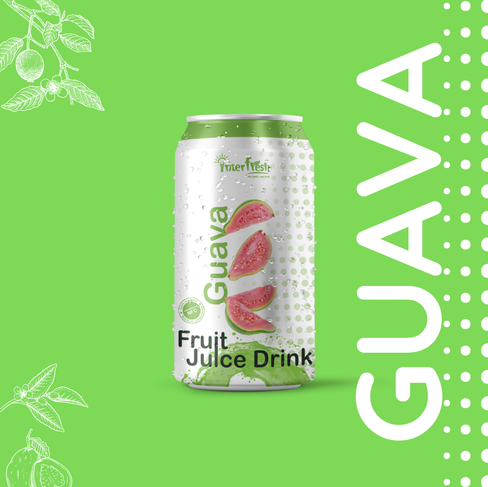Guava, a tropical fruit celebrated for its unique flavor and nutritional benefits, is a significant agricultural product in Vietnam. This versatile fruit is not only a favorite in local markets but also a growing export commodity, contributing to Vietnam's economy.
Production of Guava in Vietnam
Climate and Cultivation:
Ideal Conditions: Vietnam's tropical climate, with average temperatures ranging from 22°C to 27°C and abundant rainfall, provides the perfect conditions for guava cultivation.
Growing Regions: Key regions for guava farming include the Mekong Delta, Dong Nai, and Binh Duong provinces. These areas benefit from fertile soil and favorable weather, leading to high-quality guava production.
Varieties:
White-Fleshed Guava (Psidium guajava): Known for its sweet taste and creamy texture.
Pink-Fleshed Guava: Valued for its slightly tangy flavor and vibrant color, making it a popular choice for juices and desserts.
Nutritional Benefits of Guava Vietnam
Guava Vietnam is a powerhouse of nutrients, offering numerous health benefits:
Vitamin C: A single guava provides over 200% of the daily recommended intake of Vitamin C, boosting the immune system.
Dietary Fiber: High fiber content aids in digestion and promotes a healthy gut.
Antioxidants: Rich in antioxidants like lycopene and quercetin, guava helps combat oxidative stress and reduce inflammation.
Economic Impact of Guava Vietnam
Export Growth:
Vietnam exported approximately 4,000 tons of guava in 2023, marking a 15% increase from the previous year. Major export markets include the United States, Japan, and Europe.
The guava export market is projected to grow by 10% annually over the next five years, driven by increasing global demand for tropical fruits.
Local Market:
Guava is a staple in local Vietnamese markets, supporting thousands of small-scale farmers and vendors. The domestic market sees a steady annual growth rate of 8%, reflecting the fruit's popularity among consumers.
Culinary Uses of Guava Vietnam
Fresh Consumption:
Guava Vietnam is commonly eaten fresh, often sliced or diced and enjoyed as a healthy snack. Its refreshing taste makes it a favorite in fruit salads and platters.
Juices and Beverages:
Guava juice is a popular beverage, known for its thirst-quenching properties and nutritional benefits. In 2023, Vietnam produced over 2 million liters of guava juice, catering to both domestic and international markets.
Culinary Dishes:
The fruit is used in a variety of culinary applications, including jams, jellies, sauces, and desserts. Guava paste, a sweet and tangy product, is widely used in baking and confectionery.
Challenges and Opportunities for Guava Vietnam
Challenges:
Pests and Diseases: Guava crops can be affected by pests like the guava fruit fly and diseases such as anthracnose, which can impact yield and quality.
Climate Variations: Changing weather patterns pose a risk to consistent guava production.
Opportunities:
Agricultural Innovations: Investment in research and development of pest-resistant guava varieties and improved farming techniques can enhance productivity.
Market Expansion: There is significant potential to explore new markets in Asia, the Middle East, and Africa, where demand for tropical fruits is rising.
Value-Added Products: Developing value-added guava products, such as guava-based snacks, candies, and beverages, can diversify income streams for producers.









Comentários